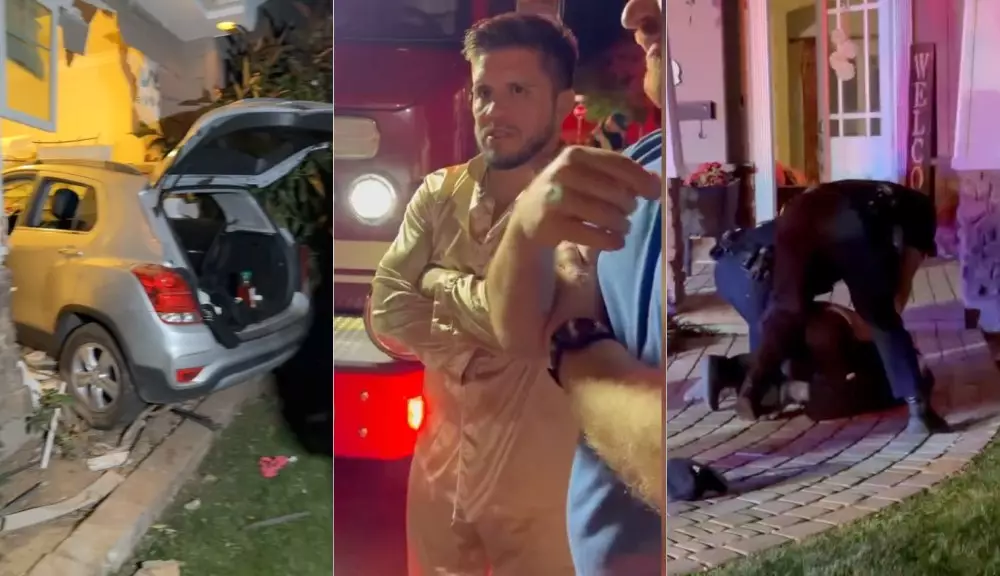Imagine a peaceful evening, where the only sounds are laughter from children and the gentle rustle of leaves in the wind. This serene scene was shattered in Phoenix, Arizona, when former UFC champion Henry Cejudo was thrust into a heart-stopping moment that transformed his neighborhood into a scene of chaos. What began as a regular night quickly escalated into a dangerous situation involving reckless driving that endangered countless lives. Cejudo’s quick instincts and heroic actions during this alarming incident show the character behind the athlete.
A Dangerous Encounter
On that fateful Friday night, Cejudo witnessed a vehicle careening down the street at an astonishing speed—between 80 to 100 miles per hour—before it crashed into a neighbor’s home. The terrifying sight could have easily resulted in tragedy, particularly if children had been in close proximity. Cejudo bravely described the potential consequences of the accident, emphasizing how crucially close the community had come to a horrific outcome. The instinct to defend and protect those around him kicked in rather quickly, illustrating not just bravery, but an innate desire to maintain safety within his community.
Taking Action in Crisis
As the situation unfolded, and the driver attempted to flee, Cejudo quickly mobilized to contain the panic. His athletic prowess was not merely relegated to the octagon; it became a tool for community preservation. Alongside the owner of the damaged property, he confronted the would-be escapees, declaring, “Hey, you guys aren’t going nowhere.” This powerful statement not only signaled a refusal to accept cowardice but also became a rallying cry for other neighbors who joined in the effort to hold the perpetrators accountable.
In the fray, turmoil erupted; one suspect lashed out and struck Cejudo’s neighbor, prompting the former champion to intervene physically. Cejudo’s actions, including restraining one of the suspects until police arrived, exemplified the spirit of camaraderie and protective instinct that binds neighborhoods together in times of crisis. His description of lifting and controlling the assailant speaks volumes about not only his physical abilities but also his moral fortitude.
The Aftermath of a Close Call
Cejudo’s reflections on the aftermath cast a poignant light on the incident’s gravity. The heart-wrenching reality of how different the night could have turned had children been outside lingers heavily. He referred to the recent neighborhood block party, attended by families and children, noting the razor-thin line between safety and a potential disaster. His concerns echo a larger societal need to prioritize community safety and the urgent consequences of reckless behavior.
In the aftermath of this near-tragedy, it becomes evident that more than just a home was damaged; the peace of a neighborhood was threatened. Cejudo’s actions remind us all that when faced with danger, selflessness and bravery can emerge from even the most unexpected places. It reinforces the importance of community and how individuals can rise above to protect not only the safety but the integrity of their local environment.

